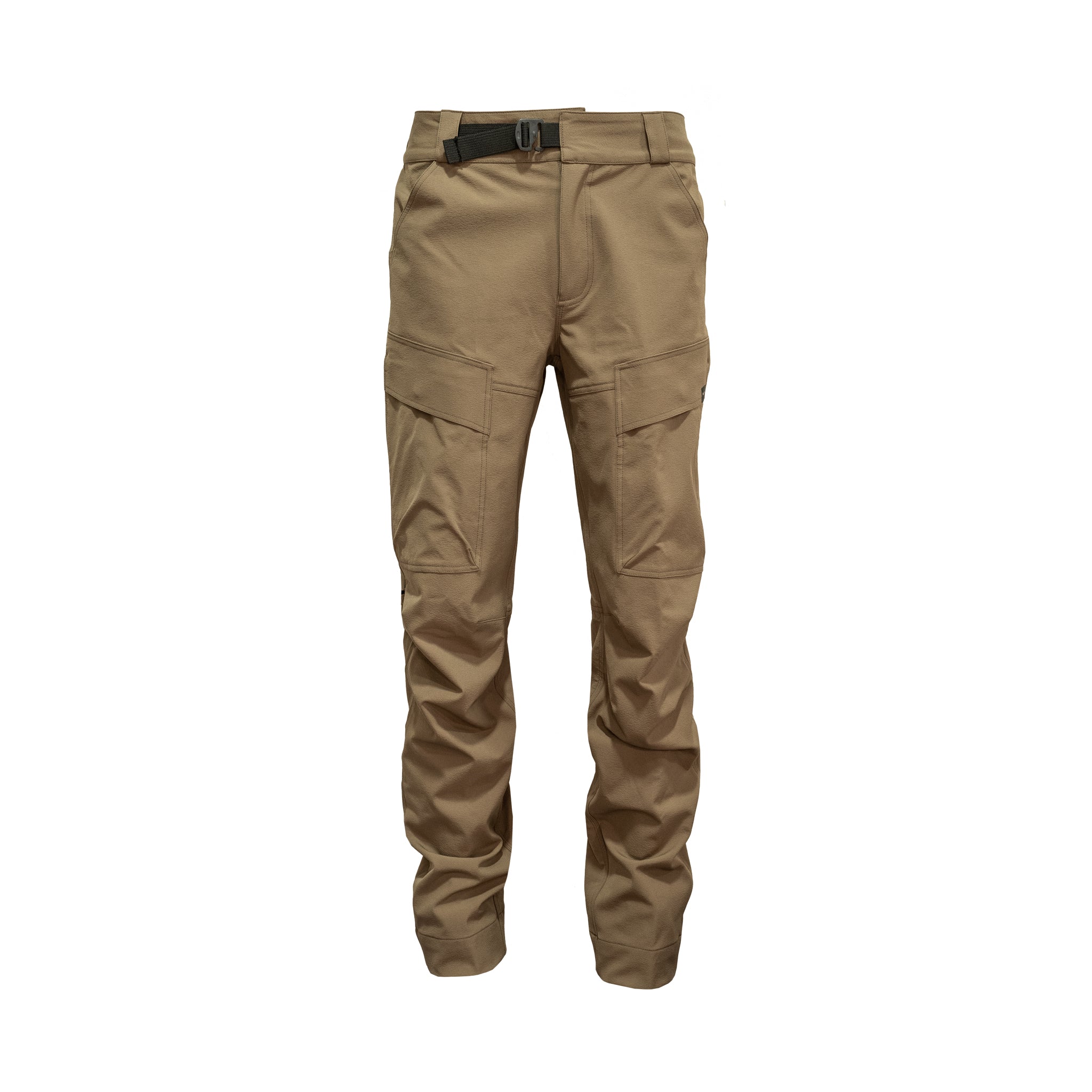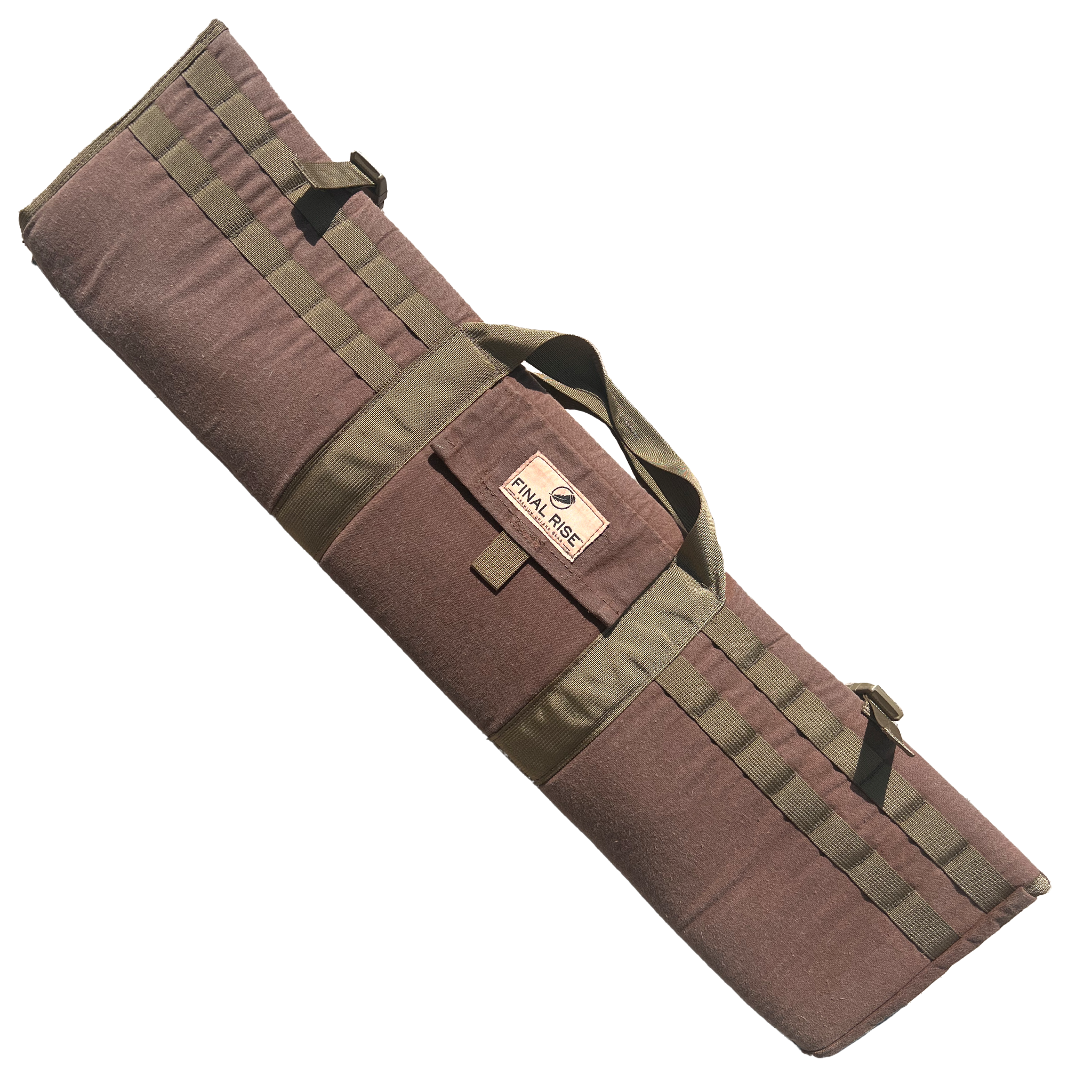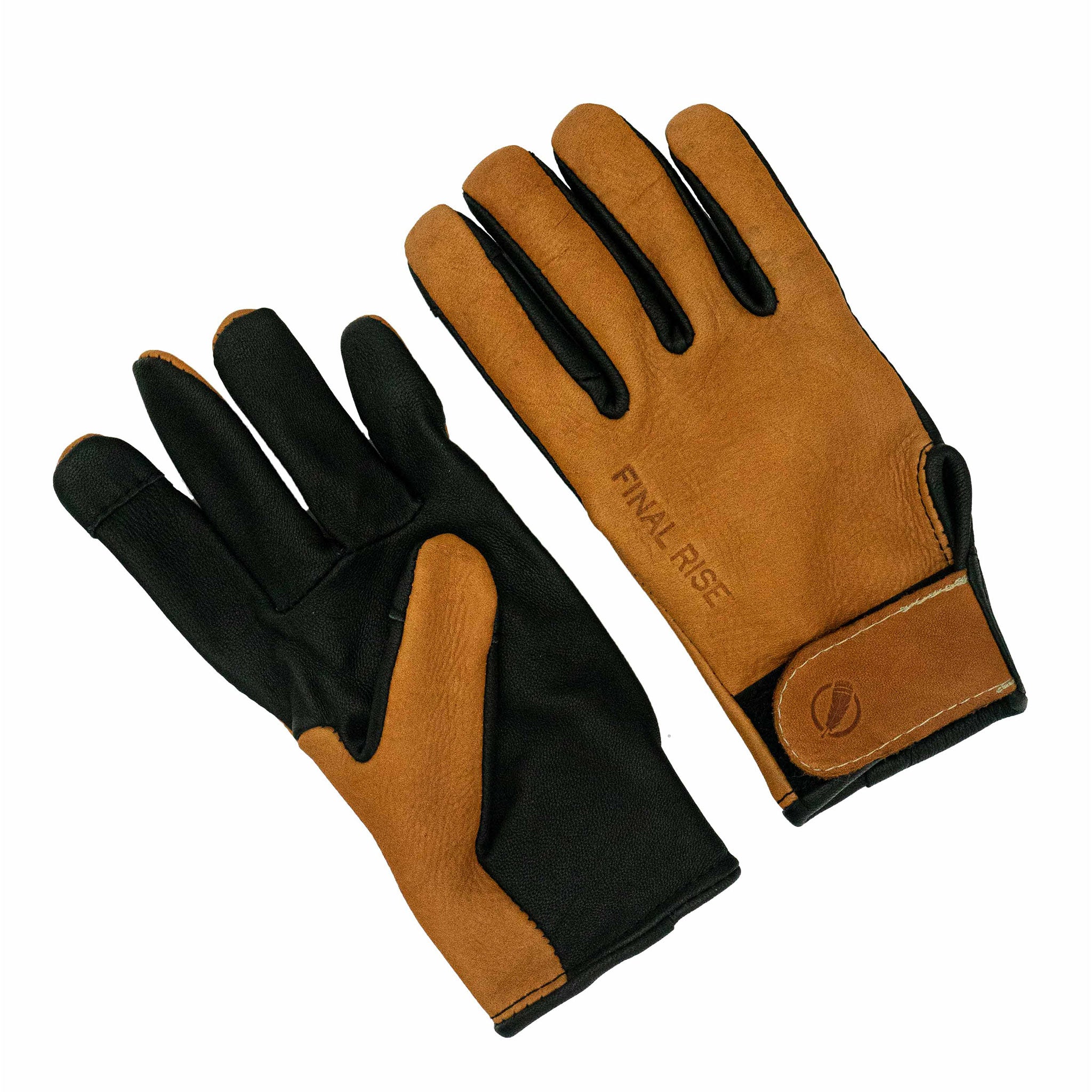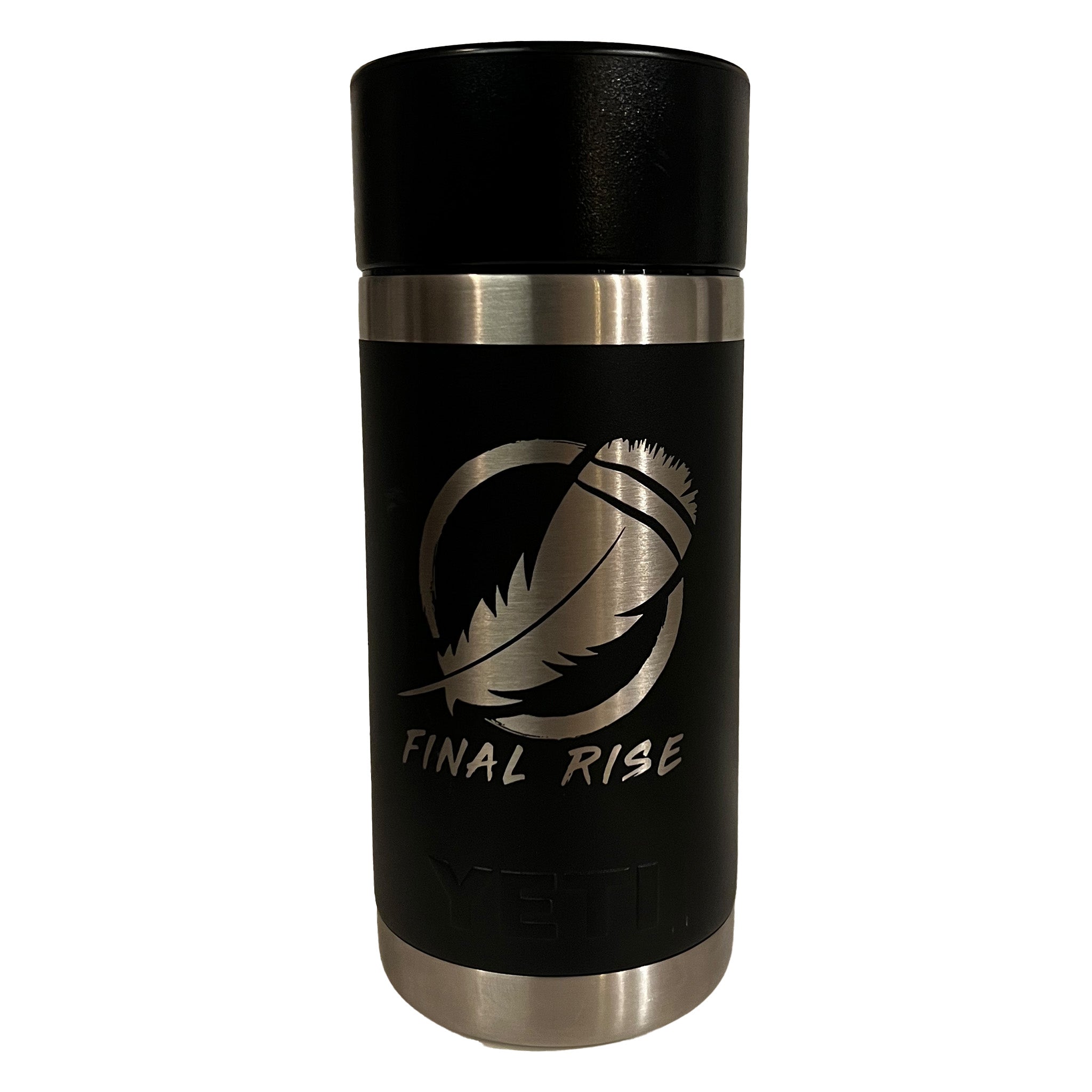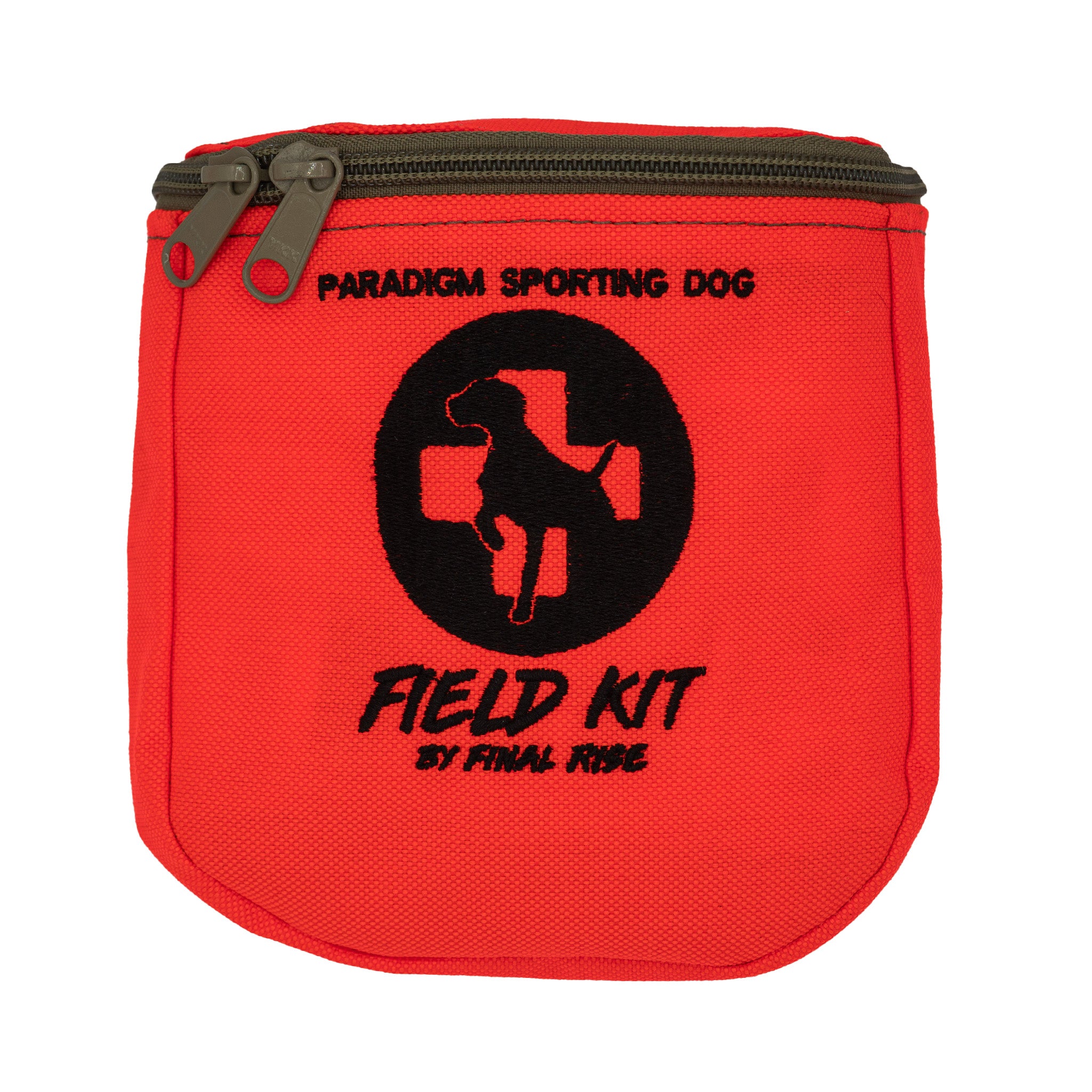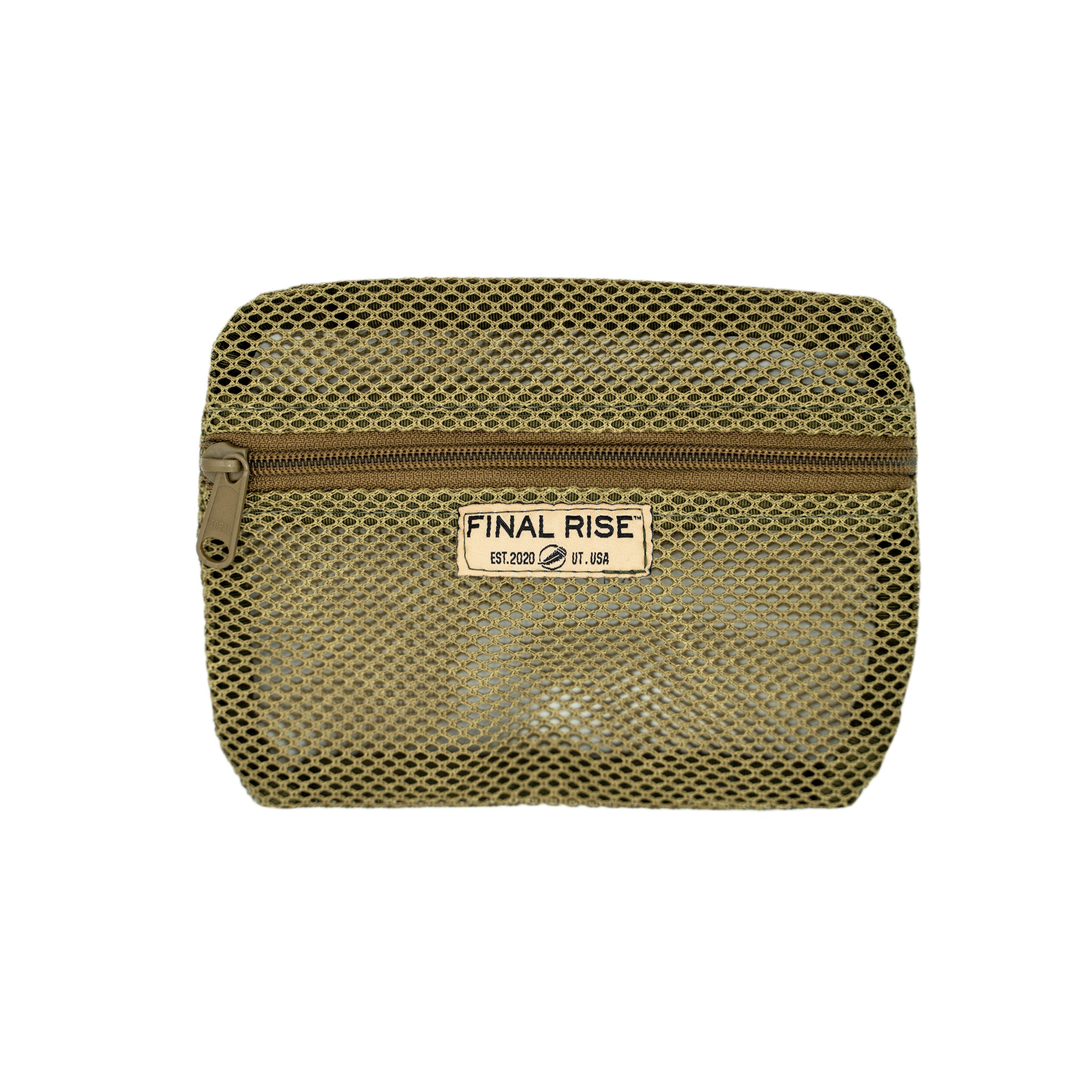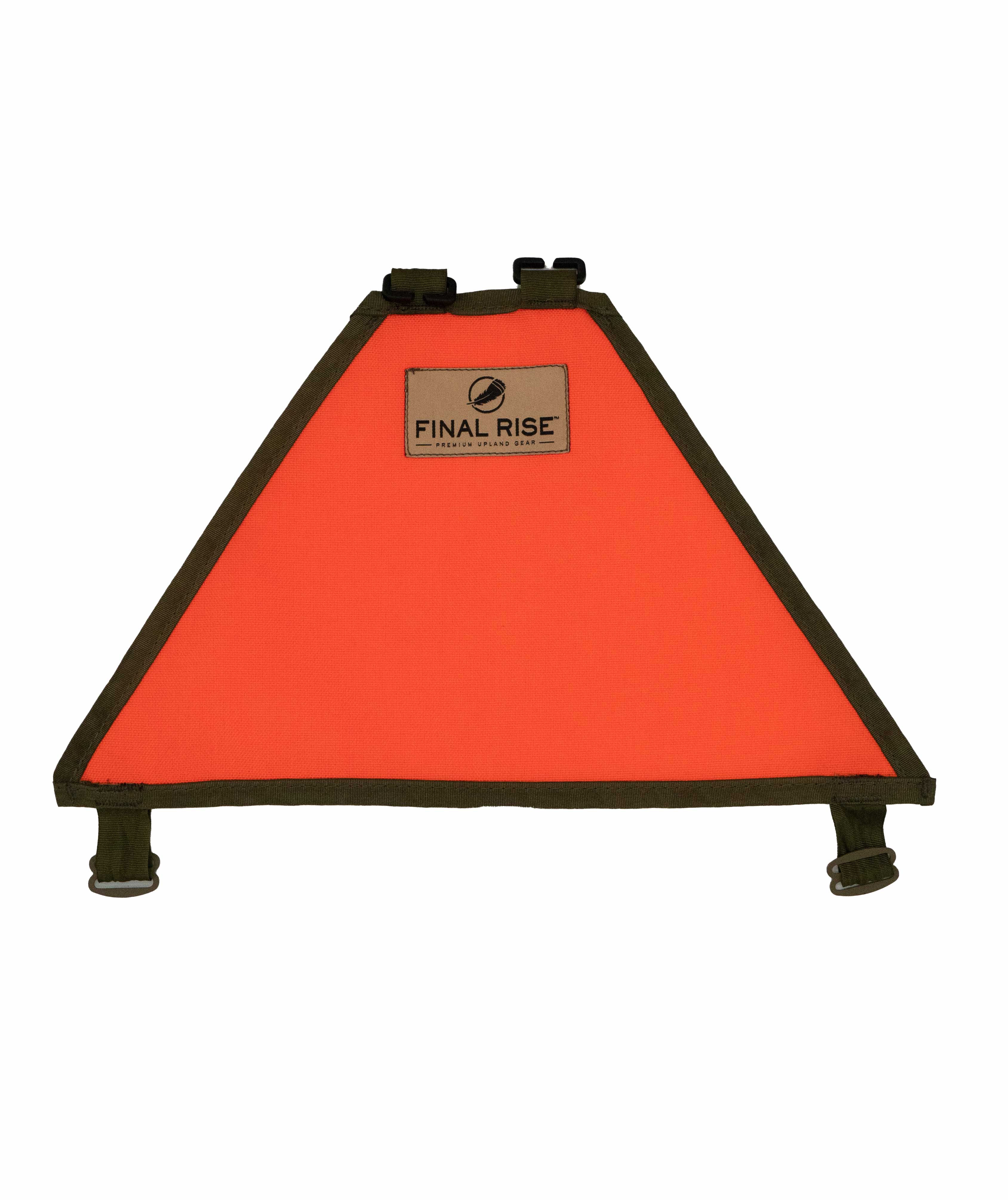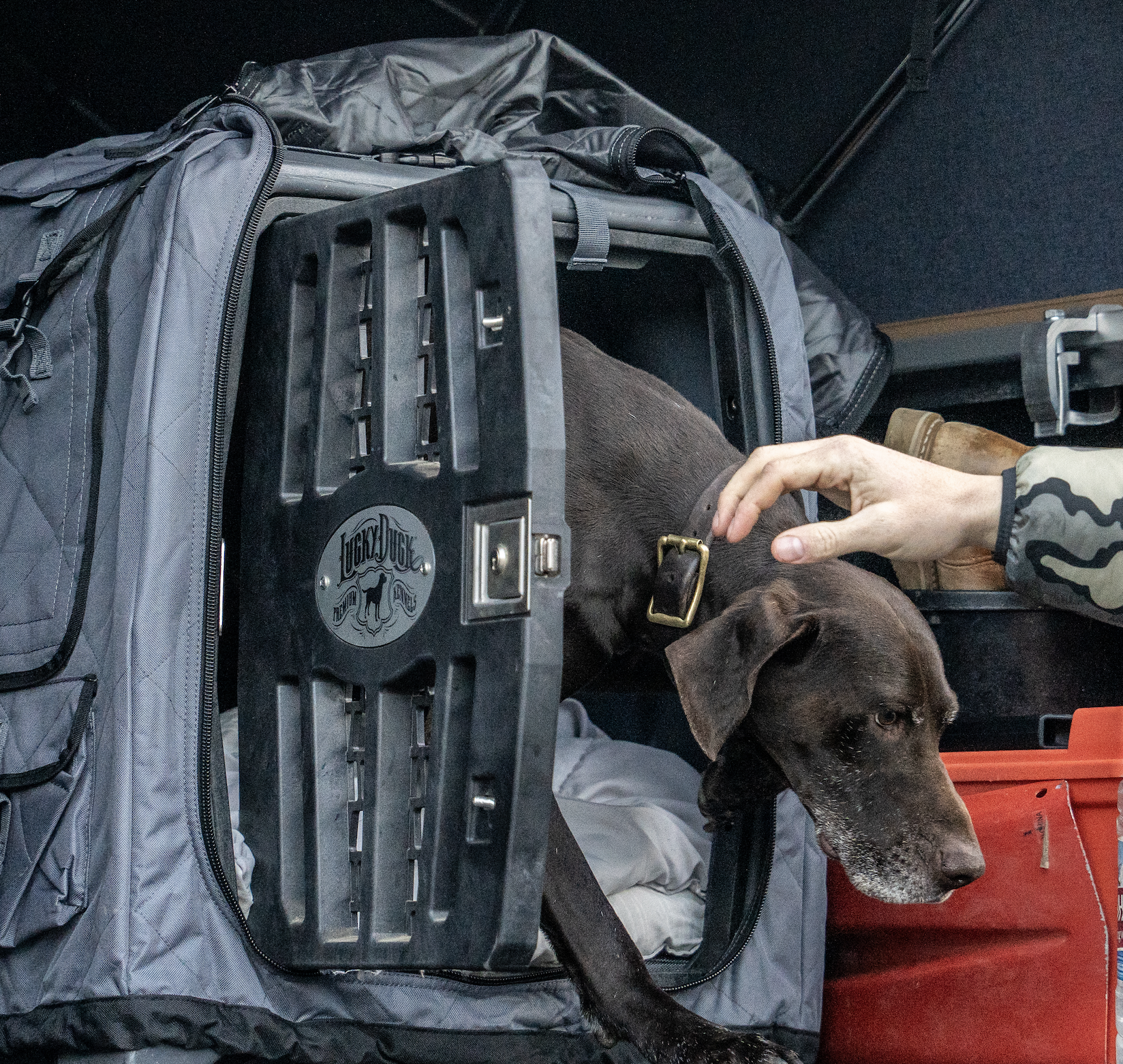
How to Travel With Your Bird Dog: Gear, Safety, and Road-Ready Tips for Upland Hunters
For many upland hunters, the hunt begins long before boots hit the ground. Traveling with your bird dog is a tradition in itself—whether you’re chasing roosters in the Dakotas, running the chukar hills of the West, or making a cross-country road trip in pursuit of the upland slam. But hitting the road with your four-legged hunting partner requires planning, preparation, and the right gear to keep them safe, healthy, and ready for the hunt.
This guide outlines everything you need to know about traveling with your bird dog, from kennels and hydration to roadside breaks and veterinary prep, ensuring that both you and your dog arrive hunt-ready.
1. Pre-Trip Prep: Health and Documentation
Before you even load the truck, make sure your dog is travel-ready:
-
Veterinary Check-Up: Schedule a quick health exam to confirm vaccinations are current (rabies, bordetella, parvo, etc.). This is especially important if you're crossing borders into another country.
-
Health Records: Carry a digital or printed copy of vaccination records—some states, hunting preserves, or hotels require them.
-
Microchip & ID Tags: Ensure your dog has an up-to-date collar tag with your phone number. A microchip adds an extra layer of security if they ever get lost on the road and is well worth the small investment. Losing a dog should never happen if you're properly prepared.
-
Conditioning: Long road trips followed by long hunts demand stamina. Gradually increase your dog’s exercise leading up to travel to help them perform in the field. Going from the couch to the field isn't fair to the dog and will take away from the potential success of your trip.
2. Safe and Comfortable Travel Kennels
A proper kennel is the single most important investment for road trips with your hunting dog:
-
Crate-Style Travel Kennels: Opt for crash-tested, heavy-duty kennels. We personally use Lucky Duck Kennels as they're very durable but light enough to take in and out of the truck and they also fit underneath a topper.
-
Ventilation: Good airflow is essential, especially if you’ll be traveling in warm climates. If you're running a topper of any sort, shell or soft topper, consider adding fans to the kennels to ensure good air flow.
-
Padding & Bedding: Add a kennel pad to reduce joint stress and keep your dog comfortable on long hauls.
-
Tie-Downs: Secure kennels in your truck bed or SUV so they don’t shift during transit.
- Kennel Covers: As the season progresses, ensure your dog's body temperature is stable. For a hunting dog to recover they can't be wasting energy and calories to stay warm. A good kennel cover can keep your dog warm, comfortable and ensure they recover faster for multi-day hunts.
Pro-Tip: You can purchase Govee Thermostats that you can hang inside or near your dog kennel to monitor the temperature in the kennel or under the shell of your truck. They have a useful app that makes this easy to monitor while you're driving or from inside your hotel or lodge.
3. Hydration and Nutrition on the Road
Bird dogs burn serious calories, especially when traveling and hunting back-to-back days. Here’s how to keep them fueled:
-
Water Supply: Always carry extra gallons of clean water. Dogs can dehydrate quickly when it's the first hunts of the fall and they're not in great shape. The more dogs you have in tow, the more water you require. We put a dog bowl inside their kennel during travel if they get thirsty and need to drink. We take every opportunity to put water in front of the dogs to ensure they're as hydrated as possible.
-
Good Dog Bowls: Lightweight and easy to stash in your truck are a must. While metal bowls are nice, they're loud during travel. We source bowls from our local feed store that are made of a very durable rubber. Warning: If you have a dog that's a 'chewer' don't put these bowls inside the kennel with them for long periods of time.
-
Hydration Supplements: Canine hydration products are fairly broad in offerings. We've had success in using Glycocharge, which can be found on amazon. It's great to add to their food, post-run, and the beef flavor helps a stubborn dog drink more water when they're reluctant to do so. We are not veterinarians and encourage you to consult your vet if hydration products are right for your dog.
-
Consistent Diet: Stick with the same high-quality kibble your dog eats at home to avoid stomach upset. Bring enough for the entire trip and consider giving them a little more when on the road. A hunting dog is burning calories beyond our comprehension.
4. On-the-Road Breaks & Exercise
A restless dog isn’t a good hunting dog. Make frequent stops:
-
Every 2–3 Hours: Give your dog a bathroom break, stretch, and a drink of water.
-
Safe Areas: Use rest stops or quiet field edges away from traffic. Always leash your dog when they’re not in a fenced area.
5. First Aid and Emergency Preparedness
Upland hunting and travel come with risks. Be prepared with a dog-specific first aid kit that includes:
- 4 x Alcohol Prep Pads
- 2 x Telfa Pad
- Benadryl (Diphenhydramine) 25mg Capsules/Tablets (100 ct bottle)
- 5 x Honey Packets
- Kwik Stop Powder
- Saline Eye Wash
- Cast Padding
- Tourniquet
- Vet Wrap
- Bandage Scissors
- Thumb Forceps (Tweezers)
- Hemostats (Clamps)
- Emergency Blanket
-
Muzzle
We offer a pre-built kit you can attach to your upland vest here - https://finalrise.com/collections/pockets-add-ons/products/first-aid-field-kit
Pro Tip: Save your veterinarian’s contact info in your phone and locate emergency clinics along your travel route.
6. Lodging and Dog Etiquette
When staying at hotels, cabins, or camps:
-
Confirm Dog-Friendly Policies: Many hunting lodges are set up for dogs, but hotels may require advance notice.
-
Respect Shared Spaces: Keep your dog crated when unattended to avoid damage.
-
Clean Up: Always carry waste bags, shovel and leave no trace. No one wants to step in your dog's crap.
7. Hunting Vest & Field Gear for Dogs
Just like hunters need the right vest, so do dogs. Consider:
-
Protective Dog Vests: Lightweight, durable upland vests shield against briars, barbed wire, and cold water retrieves.
-
GPS Collars: A must-have for wide-ranging dogs in open country.
-
Bell or Beeper Collars: Useful in thick cover where visibility is limited.
Final Thoughts: A Prepared Dog is a Better Hunting Partner
Traveling with your bird dog isn’t complicated—but it does require forethought. By packing the right gear, maintaining hydration and safety, and respecting the needs of your hunting partner, you’ll ensure many safe miles and unforgettable hunts together.
When the truck tailgate drops and your dog’s paws hit new ground, you’ll be glad you took the extra time to prepare. After all, a healthy, comfortable bird dog isn’t just your hunting partner—they’re part of the upland experience.

